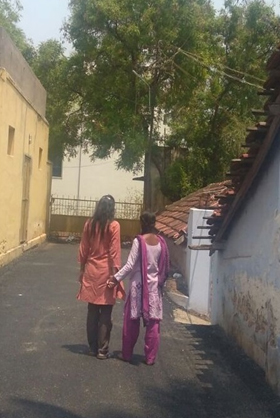
- Home
- Our Vision
- Leadership Team
- ICPH Services
- Public Health Desk
- COVID-19 Response
- Nurturing the Spiritual Development of Children
- Toolkit poster
- A concise summary of the workshop
- Overview of Educator’s Training
- Presentations from the India Team
- Classroom Implementation – Observation Analysis at Bala Shanti Kendra’s
- Overview of Bala Shanti Children’s Parent Sessions
- Glimpses from the Educator’s Dairy
- Reflection of the Focal Lead in India
- India Photo Gallery



 The spread of the HIV epidemic is a global concern that has social, cultural, economic, political and ethical implications. While the need to spread awareness about the prevention and control of the virus has been acknowledged by governments across the globe, lesser attention has been paid to ensuring that those infected with the virus lead a life of dignity. It is perhaps for this reason that the UN while recognising HIV to be not just a disease but also a Human rights issue, recognises discrimination against those living with HIV as an abuse of Human rights . Further, the right to dignity for a patient with HIV includes the right to healthy disclosure in cases where they were unaware. The World Health Organisation reports of evidence of health benefit (e.g. reduced risk of death) and little evidence of psychological or emotional harm from disclosure of HIV status to HIV-positive children by stressing that the disclosure of diagnosis is a step in the process of adjustment by the child, caregivers, and the community to an illness and the life challenges that it poses.
The spread of the HIV epidemic is a global concern that has social, cultural, economic, political and ethical implications. While the need to spread awareness about the prevention and control of the virus has been acknowledged by governments across the globe, lesser attention has been paid to ensuring that those infected with the virus lead a life of dignity. It is perhaps for this reason that the UN while recognising HIV to be not just a disease but also a Human rights issue, recognises discrimination against those living with HIV as an abuse of Human rights . Further, the right to dignity for a patient with HIV includes the right to healthy disclosure in cases where they were unaware. The World Health Organisation reports of evidence of health benefit (e.g. reduced risk of death) and little evidence of psychological or emotional harm from disclosure of HIV status to HIV-positive children by stressing that the disclosure of diagnosis is a step in the process of adjustment by the child, caregivers, and the community to an illness and the life challenges that it poses.






